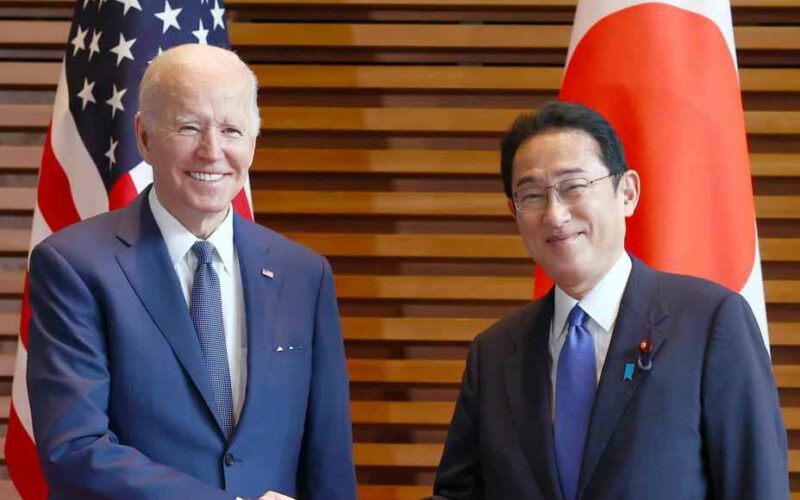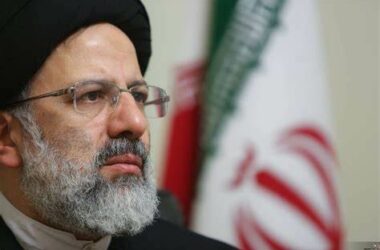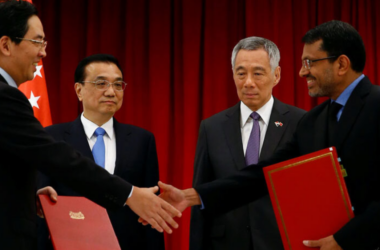U.S. President Joe Biden and Japanese Prime Minister Fumio Kishida revealed plans for enhanced military cooperation and collaborative endeavors spanning from missile development to lunar exploration during a joint announcement at the White House on Wednesday. The initiatives underscore a deepening of their alliance, strategically aimed at countering the influence of China and Russia.
The joint news conference highlighted Japan’s growing significance on the global stage and its pivotal role in the eyes of the United States. Against the backdrop of international tensions, Biden and Kishida addressed various geopolitical issues, including the situations in Gaza, Israel, Ukraine, and North Korea.
Both leaders downplayed a recent dispute concerning Nippon Steel’s bid for U.S. Steel, emphasizing that it did not overshadow the substantial discussions held during the day, which culminated in a grand state dinner.
Biden hailed the enhanced alliance as the most significant upgrade since its inception, with discussions primarily focusing on the Indo-Pacific region and addressing China’s actions. The United States and Japan, along with their allies, have been fortifying their military capabilities in response to perceived threats from China, particularly in the South China Sea and the East China Sea, and to safeguard the sovereignty of Taiwan.
Kishida underscored the importance of upholding the rule of law in maintaining international order, especially concerning Taiwan-China relations. He reiterated the stance against unilateral attempts to alter the status quo through force or coercion, emphasizing the need for continued vigilance and cooperation in the face of challenges posed by China.
Biden reaffirmed the defensive nature of the U.S.-Japan alliance and emphasized the importance of maintaining open lines of communication with China. The collaboration between the two countries extends to various domains, including military command structure, missile defense, and space exploration.
The visit signifies a significant milestone in the relationship between two former WWII adversaries, now close allies, as they reinforce their ties across multiple fronts. The announcements reflect a deepening of cooperation, with around 70 agreements on defense cooperation and efforts to enhance military command structures.
Japan’s evolving role on the global stage, underscored by its security law reforms, positions it as a key partner for the United States in the Asia-Pacific region and beyond. Kishida’s upcoming address to the U.S. Congress and participation in trilateral meetings with Biden and Philippine President Ferdinand Marcos Jr. further demonstrate Japan’s growing international engagement.
As the visit unfolds amid geopolitical tensions and economic considerations, both leaders aim to send a clear message of unity and solidarity, with a focus on countering China’s assertive behavior in the region. Despite lingering controversies and uncertainties, the visit serves to reinforce the enduring strength of the U.S.-Japan alliance and its commitment to shared strategic interests.








